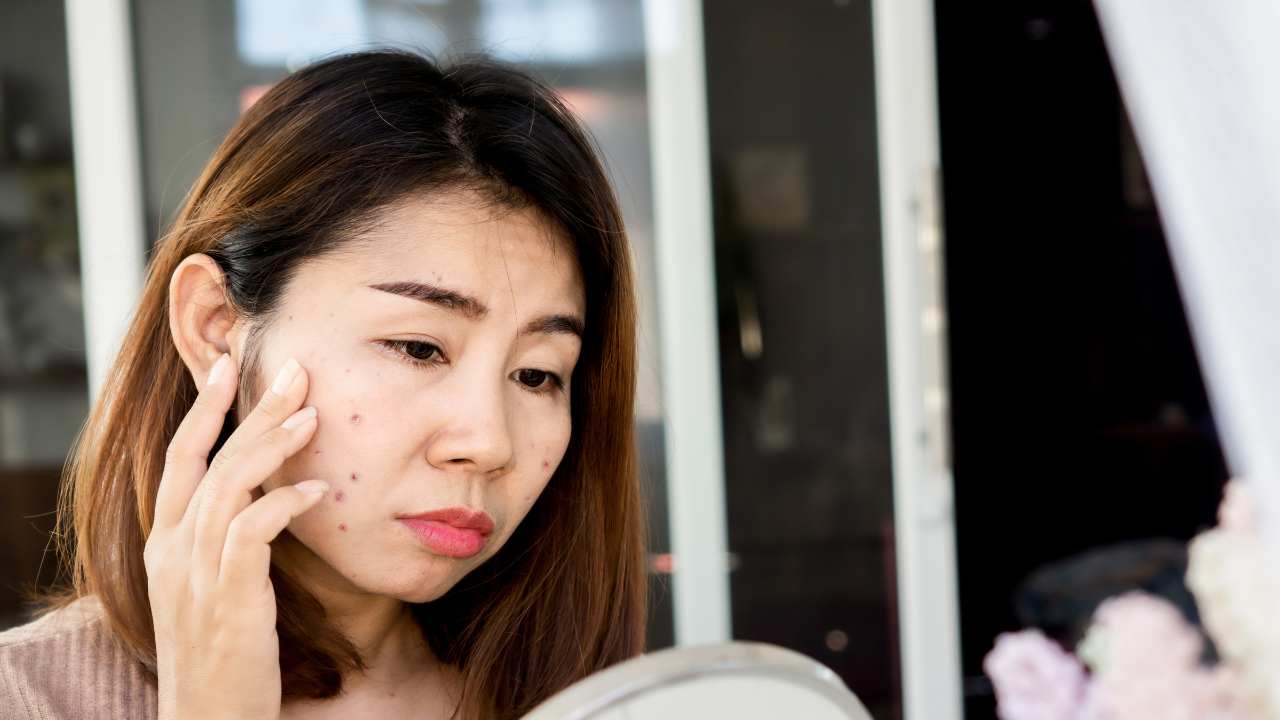Skincare refers to the routine of taking care of one’s skin, focusing on cleanliness and maintaining the skin’s health. It includes practices like washing, moisturizing, and protecting the skin to prevent damage from harmful elements like the sun, pollution, and harsh weather. In the digital age, skincare has become a significant topic of discussion, especially among millennials and Gen Z.Healthy skin is a reflection of your overall health. Regular skincare routines help maintain the skin’s elasticity, improve blood circulation, and prevent premature aging. A proper routine can also address skin conditions like acne, dryness, or sensitivity, helping you achieve a glowing, youthful appearance.Blogs are an excellent resource for skincare advice, providing expert tips, product recommendations, and personal experiences. They offer a variety of methods and remedies based on different skin types and needs, which makes them a go-to source for individuals seeking personalized skincare guidance.
Why Skin Care is Important?
- Importance of Skin Health
Skin is the largest organ of the body, and it acts as a protective barrier against the environment, harmful chemicals, and pathogens. Taking care of your skin not only improves its appearance but also enhances its function, helping prevent infections and skin diseases. - Effects of Poor Skincare Habits on Skin
Poor skincare habits such as neglecting sunscreen, using harsh products, or failing to moisturize can lead to premature aging, pigmentation, acne breakouts, and an uneven skin tone. It may also cause chronic conditions like eczema or dermatitis. - Common Skin Problems (Acne, Dryness, Aging, etc.)
Common skin problems can range from acne, which results from clogged pores, to dryness caused by lack of moisture, and signs of aging like wrinkles or fine lines. Skin care helps prevent or minimize these issues by addressing the root causes such as hydration, exfoliation, and nourishment.
Understanding Your Skin Type
- Oily Skin
Oily skin produces an excess of sebum, which can make it prone to clogged pores and acne. However, oily skin tends to age slower because of the natural oils that help keep it hydrated. Proper care includes using lightweight, oil-free products. - Dry Skin
Dry skin lacks moisture, leading to a rough, flaky texture. It may appear dull and can develop fine lines prematurely. Regular hydration with a rich moisturizer and occasional exfoliation is essential. - Combination Skin
Combination skin is characterized by oiliness in some areas (usually the T-zone: forehead, nose, and chin) and dryness or normal skin in others. It requires a balanced skincare routine that caters to both oiliness and dryness. - Sensitive Skin
Sensitive skin can react negatively to certain products, resulting in redness, burning, or breakouts. Sensitive skin requires gentle, fragrance-free products with soothing ingredients like aloe vera and chamomile. - How to Determine Your Skin Type
Determining your skin type is simple. You can conduct a skin test by cleansing your face and waiting for 30 minutes. If your skin feels tight, it’s likely dry. If it’s shiny, you may have oily skin. Combination skin will show signs of oiliness in the T-zone and dryness elsewhere. If your skin reacts easily, it’s sensitive.
Daily Skin Care Routine
- Step-by-Step Skincare Routine (Cleansing, Toning, Moisturizing)
A daily routine should ideally consist of:- Cleansing: Removes dirt, oil, and impurities from the skin.
- Toning: Helps balance the skin’s pH and tighten pores.
- Moisturizing: Ensures your skin stays hydrated and soft.
- Importance of Sunscreen
Sunscreen is vital in protecting the skin from harmful UV rays that can cause sunburn, premature aging, and even skin cancer. It is essential to wear sunscreen daily, even when indoors, as UV rays can penetrate through windows. - How to Adjust Your Routine Based on Skin Type
If you have oily skin, opt for a foaming cleanser and a light, oil-free moisturizer. For dry skin, choose a creamy cleanser and rich moisturizer. Sensitive skin will benefit from gentle, fragrance-free products.
Skincare Products You Should Use
- Cleanser
A good cleanser removes dirt, excess oil, and makeup without stripping the skin of natural moisture. Choose a cleanser suited to your skin type (gel for oily, creamy for dry). - Toner
Toners help restore pH balance and tighten pores. Look for alcohol-free toners to avoid drying the skin. - Moisturizer
Moisturizers hydrate and lock in moisture. Consider gel-based moisturizers for oily skin and thicker creams for dry skin. - Sunscreen
SPF is non-negotiable. Opt for a broad-spectrum sunscreen with at least SPF 30 for daily use. - Masks and Exfoliants
Exfoliants remove dead skin cells, helping your skin look fresh and glowing. Use them 1-2 times a week to avoid irritation. - Serums
Serums are packed with concentrated active ingredients like vitamin C, hyaluronic acid, or retinol that target specific skin concerns like pigmentation or aging.
Natural Skincare Remedies
- Benefits of Using Natural Ingredients
Natural ingredients are gentle on the skin and often contain vitamins, antioxidants, and other nutrients that promote skin health. They are free from harmful chemicals and can be just as effective as commercial products. - Best Natural Skincare Ingredients (Aloe Vera, Honey, Turmeric, etc.)
- Aloe Vera: Soothes and moisturizes the skin while reducing redness and irritation.
- Honey: A natural humectant, honey draws moisture into the skin and has antibacterial properties.
- Turmeric: Known for its anti-inflammatory and brightening properties.
- DIY Skincare Recipes
- Aloe vera and honey face mask for hydration.
- Turmeric and yogurt mask for glowing skin.
How Diet Affects Your Skin
- Foods That Help Improve Skin Health
Diet plays a significant role in the appearance of your skin. Foods rich in antioxidants, vitamins (especially vitamin C), and omega-3 fatty acids, like berries, leafy greens, nuts, and fish, can help keep your skin healthy. - Foods to Avoid for Clear Skin
Avoid sugary foods, processed foods, and excessive dairy, as they may trigger acne breakouts. - The Importance of Hydration for Healthy Skin
Drinking plenty of water keeps your skin hydrated and helps flush out toxins, preventing dull and dry skin.
Tips for Healthy Skin in Different Seasons
- Winter Skincare Tips
In winter, skin loses moisture quickly due to dry air. Use thicker creams, oils, and hydrating masks. Consider using a humidifier to keep moisture in the air. - Summer Skincare Tips
During summer, your skin is more prone to sunburn. Apply sunscreen liberally, and keep your skin moisturized to prevent sun damage. - Adjusting Skincare Routines to Changing Seasons
Switching to lighter products in warmer months and thicker, more moisturizing products in colder months helps maintain skin hydration and balance.
Common Skincare Myths Debunked
- Myth 1: You Don’t Need Sunscreen in Winter
UV rays can still affect your skin in winter, especially when reflecting off snow. - Myth 2: Oily Skin Doesn’t Need Moisturizer
All skin types need moisture to maintain balance, including oily skin. Opt for oil-free moisturizers for oily skin. - Myth 3: Expensive Products Are Always Better
Price doesn’t always indicate quality. Many affordable products work just as well as their expensive counterparts.
How to Deal with Skin Conditions
- Acne Treatment Tips
Consistent skincare, including using salicylic acid or benzoyl peroxide, can help treat acne. Never pop pimples, as it can lead to scarring. - Dealing with Aging Skin
Anti-aging products with ingredients like retinol and peptides can help reduce fine lines. Protecting your skin from the sun also prevents further aging. - Managing Hyperpigmentation
Ingredients like vitamin C, niacinamide, and alpha hydroxy acids (AHAs) can brighten dark spots and even out the skin tone.
Skincare Mistakes to Avoid
- Over-washing Your Face
Cleansing your skin too often can strip it of essential oils and lead to dryness. - Skipping Sunscreen
Sunscreen is crucial for protecting the skin from harmful UV rays. - Using Harsh Products on Sensitive Skin
If you have sensitive skin, avoid harsh scrubs or products with alcohol and fragrances. - Neglecting Hydration
Always hydrate your skin, especially if you are using products that can dry out your skin, like acne treatments.
The Importance of Consistency in Skincare
- Why You Should Stick to a Skincare Routine
Consistency is key to seeing results. Your skin needs time to adjust to products, and constant change in routine can cause irritation. - How Long It Takes to See Visible Results
For most skincare routines, it takes about 4 to 6 weeks to start seeing noticeable improvements, depending on the issue you are addressing.
Conclusion
Healthy skin requires attention, care, and consistency. Following a suitable routine tailored to your skin type is essential for achieving the best results.Skincare is an investment in your future self. Start with a basic routine and build from there. Your skin will thank you for it in the long run.Be patient with your skin and don’t rush the process. Stick to your routine, and remember that beautiful skin is a reflection of consistent care.
FAQ Section
- How Often Should I Cleanse My Face?
Answer: Twice a day—morning and night—unless you have very dry skin, in which case cleansing once might suffice. - Can I Skip Moisturizer If I Have Oily Skin?
Answer: No, even oily skin needs moisture. Look for a lightweight, oil-free moisturizer to avoid clogging pores. - How Long Does It Take for Skincare Products to Show Results?
Answer: Most products take about 4 to 6 weeks to show visible results, so stick with your routine for at least a month.Stay Connected With Google News




